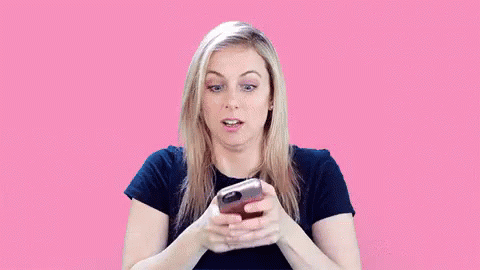Part 1:
1. How much control do you think you have over how you spend your attention?
102. How much control do you have over what elicits your emotions?
5
Ten minutes:
1. Summarize the things that caught your attention. Was it what you expected? Did anything surprise you? Write your reaction.
I strolled on Instagram, Facebook, and watched YouTube. It was pretty much what I had expected. Photo's, memes, and videos caught my attention. A few things that surprised were how many ads and sponsors I encountered. I didn't really give it much thought before, but since we have been discussing it in lecture, I've noticed them a lot more. There were so many such as: Hobby Lobby, Secret Deodorant, and Lays Chips. I thought it was strange because they're the most random things.
2. Is what you're looking at important to your everyday life? Did you learn something that will improve it?
No, scrolling through my newsfeed hardly ever helps me in my day to day life. During the 10 minute session, I didn't learning anything beneficial to my life.
3. How long do you think you'll remember what you saw - an hour, a day, a week?
A day.
4. Is it causing stress, joy, or other emotions?
Some of it made me feel happy. YouTube videos make me feel motivated and relaxed. However, Facebook tends to overwhelm me sometimes because it's flooded with so much content and I try to catch up with whatever I've missed.
5. In your assessment, are you wasting your time - and thus your life - or is there value in what you are doing on these sites?
I enjoy being up to date on what's happening with friends and family. Honestly, some of it does seem like a huge waste of time. Instead of looking at memes for half an hour, I could be doing something productive.
Part 2:
1.Looking back at your rating at the beginning of Part 1, re-rate yourself.
2.How much control do you think you have over how you spend your attention?
8
3.How much control do you have over what elicits your emotions?
5
4. Did it change? If so, how?
I changed how much control I think I have over how I spend my attention from a 10 to an 8. I feel that I couldn't control scrolling onto an ad/sponsor, but at the same time, I don't have to read something I don't want to.
Part 3:
Sadly, I can admit that I have become overly dependent on my phone. When I accidently leave my phone at home, my entire day is ruined. Ridiculous, right? But it's true. I rely on it to wake me up in the morning, tell me weather, communicate with others, etc. Therefore, I'd probably feel disconnected from the world without it. I constantly feel that I need to be up to date with that's going on social media. After reading Tristan Harris's, How Technology is Hijacking Your Mind (https://medium.com/thrive-global/how-technology-hijacks-peoples-minds-from-a-magician-and-google-s-design-ethicist-56d62ef5edf3), a lot of what he said made sense. I'm constantly checking my phone for any notifications. I do think people in general are conditioned to receive a reward (notifications) whenever they check their phone. We want to always know who's liked our photos or who's requesting to follow us.
Social
media plays a huge part in people's lives now. It's how we communicate with
each other and it's very accessible to us. I think it's interesting how it can
suck us in so easily to compete for our attention. As I said earlier, I spend a
lot of my time YouTube and Harris brought up something interesting in the TED
video (https://www.youtube.com/watch?time_continue=727&v=C74amJRp730). He mentioned that YouTube tries to keep viewers on longer
by having Autoplay. There's been times where hours have passed because I let
one video play right after the other. It's just fascinating how subtle, and
significant a button like Autoplay has on views, me included. It's addicting
and I truly want to make a change, because most of the time what I'm watching
doesn't benefit me. I'd like to cut down on how much time I spend on my phone
and focus on other things I enjoy doing!





